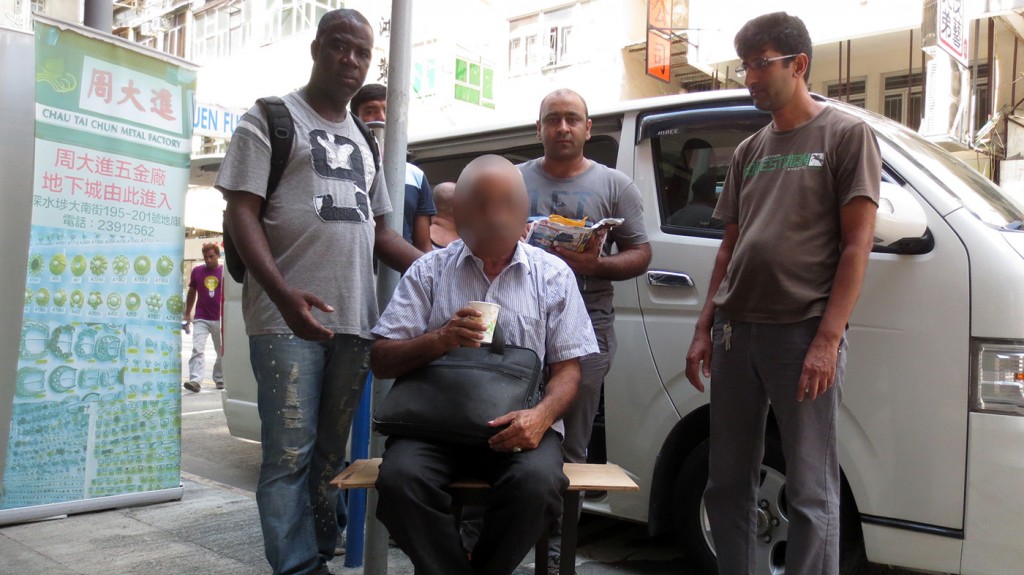
Vision First launches a series of blogs, under the title “VF Reports”, to make public challenges refugees report to us that we believe are of great public concern. One by one these might be considered minor cases, often personal in nature, although the troubles suffered by one person are often indicative of a wider malaise that should be thrust into the spotlight, because the predicaments of refugees endanger public safety.
On the one hand, this hardship is arguably not restricted to the refugee community, but speaks of a broader ‘humanitarian deficit’ in Hong Kong. On the other, it is the result of public attitudes and policies towards the underprivileged that may ultimately result in higher crime rates and illegality that cause undesirable, and preventable, domino effect in society.
In this respect, the “VF Reports” will draw from stories narrated by refugees and correspondence with relevant government department and agencies whose assistance Vision First seeks to remedy situations that, in our view, fail to deliver legitimate services, violate refugee rights and ultimately pose a threat to public safety as well as law and order.
Vision First reports the case of two South Asian refugees, one suffering from an incurable and transmittable disease, who informed that they recently signed a contract for a small flat in Sham Shui Po. Fearing to become homeless when previous contracts expired, these two friends took the initiative to locate a modest flat offered for 3300$ a month. They knew that the singleton rent allowance should be up to 1500$, so they agreed to share a room.
Their commendable efforts however turned into a nightmare. Familiar with local realty customs and aware that bargain flats do not remain long on the market, Vision First was told by these two middle-aged men that they persuaded a resident friend to lend them 9,250$ to close the deal. This included 3,300$ for the security deposit, 3,300$ for the first month rent, 1,650$ in agency fees and 1,000$ for the water and electricity deposits.
Satisfied with their new home, the two refugees took the paperwork to their case workers at the NGO contracted by the government to provide refugees with services. To their great disappointment, their case workers apparently said they cannot refund the security deposit, first month rent and agency fee. It is unclear why this occurred, but the two refugees reported that the refusal caused them great distress, as they had promised the kind lender to refund 9,250$ they had urgently required to secure the bargain flat they would call home.
The refugees reported that they anxiously explained to their case workers that if they hadn’t borrowed money to secure that room, the landlord would not have waited for them or for their case workers to visit and confirm the unit in the future. Time, for them, was indeed of the essence.
The two men also reported that in an attempt to find an alternative solution, their case workers apparently suggested that they give up that flat so that the case workers could pay cash for another unit. This however would imply the forfeit the money already borrowed and paid to the first unit. They pointed out that refugees are prohibited from working and had relied on a refund to repay a loan made to them in good faith, as such expenses should be paid according to these SWD instructions.
It appears that unnecessary hardship was inflicted upon these two refugees. In saying this, we do not imply that anyone concerned was at fault. It may well be that the refugees did not understand often rigidly drafted policies. However, it is obvious that these refugees are now hard pressed to seek remedies to their predicament that might raise their visibility with authorities.
These two friends might have to work to earn 9,250$ to repay the loan that secured their home. If public policy is aimed at upholding law and order, shouldn’t these two refugees be exceptionally permitted to raise emergency funds to solving this financial crisis? But work is prohibited for refugees, so do they need to turn into criminals to secure adequate housing? Wouldn’t a sentencing magistrate be keenly interested in the denial of service that caused this predicament in the first place?


